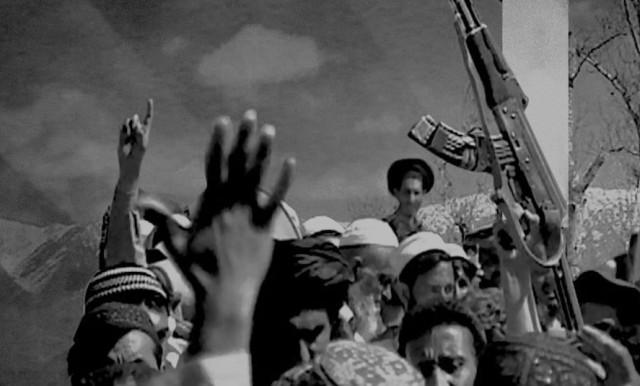Orakzai Sikhs picking up their shattered lives
Dozens of Sikh families had to abandon their cherished village and flee in the face of advancing Taliban.

Orakzai Sikhs picking up their shattered lives
Kaur and her family, like dozens of other Sikh families, had to abandon their cherished village and flee in the face of advancing Taliban, who were gaining power and wanted to impose their own hard-line version of Islam on the area.
Kaur does not want to speak about her ordeal. She is now happy to have returned to her native village located in the lap of thickly-forested mountains and surrounded by walnut and apple orchards.
“I’m very happy to have returned to my village,” a beaming Kaur told The Express Tribune. She said when they left the area, they feared they would never see their village again. “We returned to our village after the authorities told us that the area is safe,” Kaur said.
Kaur’s family is one of the 26 Sikh families, who fled the area after the Taliban gained power in their area about 18 months ago. They have been living in Orakzai Agency for generations. They assimilated into the tribal society a long time ago and have since coexisted with local tribesmen in peace and harmony.
The ascendancy of obscurantist Taliban shattered the social fabric in the Orakzai Agency. They imposed Jazya – a tax levied on non-Muslims in an Islamic state – on the local Sikh community. Finding it hard to meet the Taliban’s demand, Sikh families quietly fled the area, leaving behind their businesses and household items which were looted by militants who claimed to espouse righteousness after their departure.
Alarmed by the situation, the government ordered troops to flush out Taliban insurgents. Lower Orakzai has been purged of militants, enabling displaced Sikh families to return on October 27. These Sikh families are now trying to restart their lives from scratch.
Sam Ferozkhel, about two kilometres from the Lower Orakzai headquarters of Kalaya, looked like a deserted village.
“We left our homes and took with us just the clothes we were wearing,” Jaswant Singh, an elder of the Sikh community told The Express Tribune. “We went to Peshawar and rented a house there,” he added. Some Sikh families shifted to Hassanabdal and other parts of the country.
“The Taliban asked us to pay Rs12million in jazya. We were able to come up with just Rs6.5million. But then they started raiding our houses, demanding the remaining amount,” Singh said. “We had no option but to leave the area.” Now Singh and other members of his community hope for a peaceful life after the military operation.
Preetam Singh, who fled to Hassanabdal, said that he had rented out his farmland for Rs50,000. “When I was leaving the area, my crop was worth Rs1 million and was ready for harvest,” he told The Express Tribune.
Abdul Wali, a Ferozkhel tribesman, said they were pained by whatever happened to the Sikh community.
“We tried to protect the Sikh community as best as we can, but we were helpless after the Taliban banned us from carrying weapons,” he said. “Initially, we tried to resist the Taliban but gave up after losing 50 of our men,” Wali added. “We could not fight a much stronger force for long, that too without any government help.”
Lt-Col Aamer said security forces have cleared “90 per cent of Orakzai Agency” of militants, allowing displaced tribesmen, along with the Sikh families, to return to the area. “We are taking good care of them. They are being provided extra security,” he added.
Although they have returned to their village, the Sikh families are still vacillating between fear of Taliban reprisals and hope for a better future.
Published in The Express Tribune, October 31st, 2010.













COMMENTS
Comments are moderated and generally will be posted if they are on-topic and not abusive.
For more information, please see our Comments FAQ